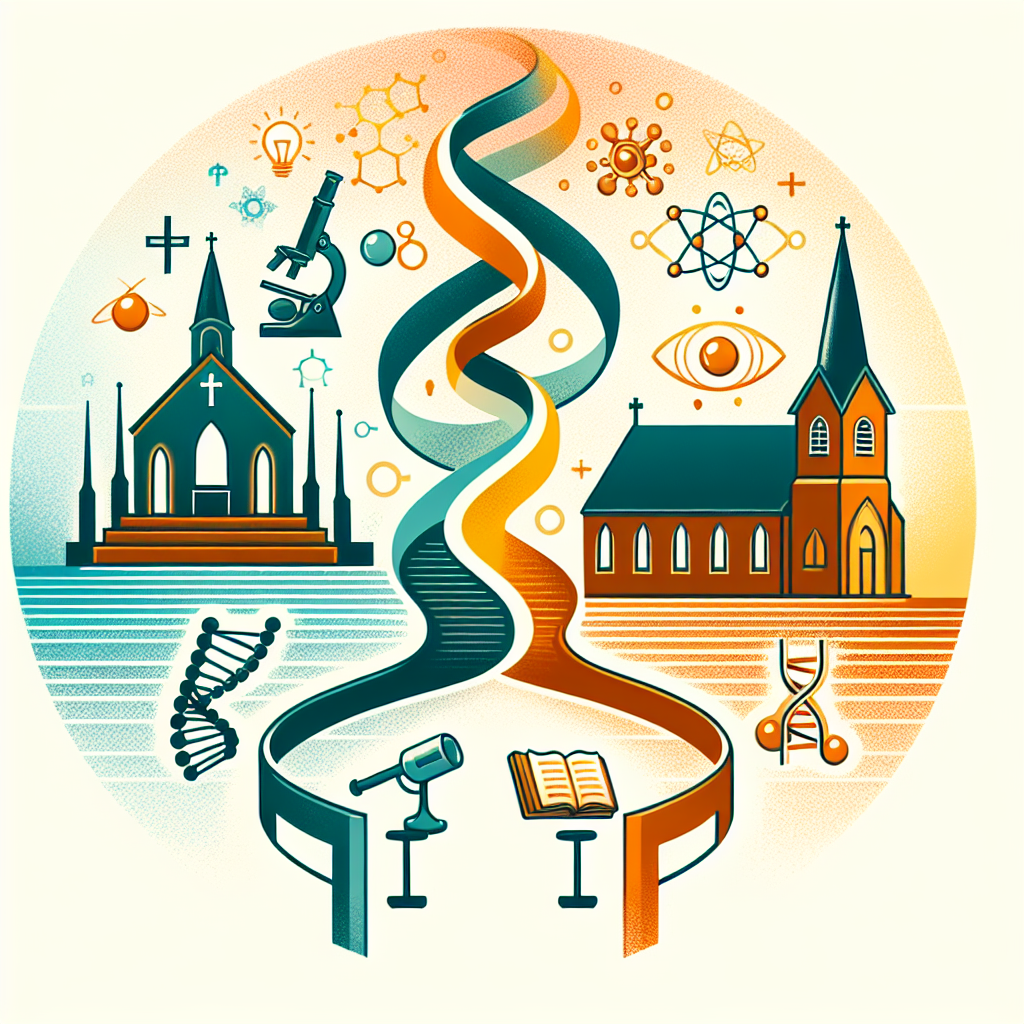Bridging Faith and Inquiry: The Role of Science in Modern Church Teachings
In today’s rapidly advancing world, the intersection of science and religion can often seem fraught with tension. However, many modern churches are embracing this partnership as a means to deepen understanding and reinforce the foundations of faith. This article explores how church teachings are increasingly integrating scientific inquiry, illustrating a harmonious relationship that nurtures both spiritual growth and intellectual curiosity.
The Call for Integration
Historically, the dialogue between faith and science has been marked by conflict. Events such as the Galileo trial exemplify the fractures that can occur when religious beliefs struggle to accommodate new scientific discoveries. Yet, as we progress into the 21st century, a paradigm shift is taking place. Many contemporary religious leaders and scholars advocate for a synthesis between scientific inquiry and spiritual belief. This call for integration reflects an understanding that both realms seek truth—albeit through different lenses.
One of the driving forces behind this integration is the recognition that science has a unique way of revealing the intricacies of creation. The wonders of the universe—ranging from the profound laws of physics to the delicate balance of ecosystems—can inspire awe and reverence. Such beauty can enhance religious experience, allowing believers to see their faith as compatible with the natural world.
Science as a Tool of Understanding
Modern church teachings increasingly position science not as an opponent but as a valuable tool for understanding faith. Many religious institutions encourage their congregations to explore scientific ideas, emphasizing that questioning is a vital element of spiritual growth. Questions like “How did the universe begin?” or “What is the nature of life?” are no longer viewed as threats to faith but as invitations to deepen one’s understanding of God’s creation.
For example, many churches are now integrating teachings from the fields of biology, astronomy, and neuroscience into their sermons and educational programs. By discussing topics such as the Big Bang Theory or evolution alongside Biblical creation narratives, leaders can provide a fuller picture of creation that retains the essence of faith while respecting scientific evidence.
Faith that Inspires Inquiry
The harmonization of faith with scientific inquiry also serves to strengthen the church’s mission to inspire curiosity and lifelong learning among its members. Many modern religious communities foster environments where questioning is not only welcomed but encouraged. This approach enriches spiritual education by emphasizing that faith does not demand blind acceptance but invites thoughtful exploration.
Church-sponsored workshops and lectures on scientific topics are becoming more commonplace. Communities that engage with subjects such as climate change, biotechnology, and health sciences empower believers to act responsively in a complex world. By framing these discussions within the context of spiritual responsibility, these churches reinforce the notion that faith calls for active participation in caring for creation and humanity.
Ethical Considerations and the Future of Science
One of the most promising aspects of the integration of science in church teachings is the focus on ethics. As scientific advancements continue to raise challenging moral questions—from genetic engineering to artificial intelligence—faith communities are uniquely positioned to contribute to these discussions. By fostering dialogue around ethical implications, churches can guide their members in making informed decisions that align with their values.
Moreover, many religious teachings emphasize stewardship of the Earth, promoting an ethical framework for confronting environmental crises. The science of climate change and ecology has united many faith communities in a shared mission to protect and preserve the natural world, demonstrating how empirical research can serve as a catalyst for faith-driven action.
A New Era of Collaboration
As we look toward the future, the relationship between faith and science is poised for even greater collaboration. Increasingly, religious organizations are partnering with scientific institutions to tackle societal challenges. Projects focusing on health care accessibility, poverty alleviation, and environmental sustainability are blossoming through the combined efforts of both sectors, showcasing how faith and science can work hand in hand for the common good.
In this era of unprecedented knowledge and discovery, faith and inquiry can coexist harmoniously. The modern church has the opportunity to serve as a beacon of hope, encouraging believers to embrace scientific exploration while reinforcing the spiritual insights that provide meaning in our lives.
Conclusion
Bridging faith and inquiry enriches both realms, creating a dialogue that encourages curiosity while deepening spiritual understanding. The role of science in modern church teachings signifies a progressive shift towards integration, demonstrating that faith and reason do not stand in opposition but can enhance one another. As we continue to explore the complexities of existence, let us celebrate the shared mission of faith and science, allowing both to illuminate the path of understanding, compassion, and commitment to the world around us.
Explore and dig up answers yourself with our BGodInspired Bible Tools! Be careful – each interaction is like a new treasure hunt… you can get lost for hours 🙂


